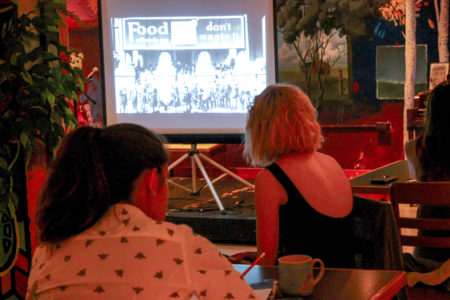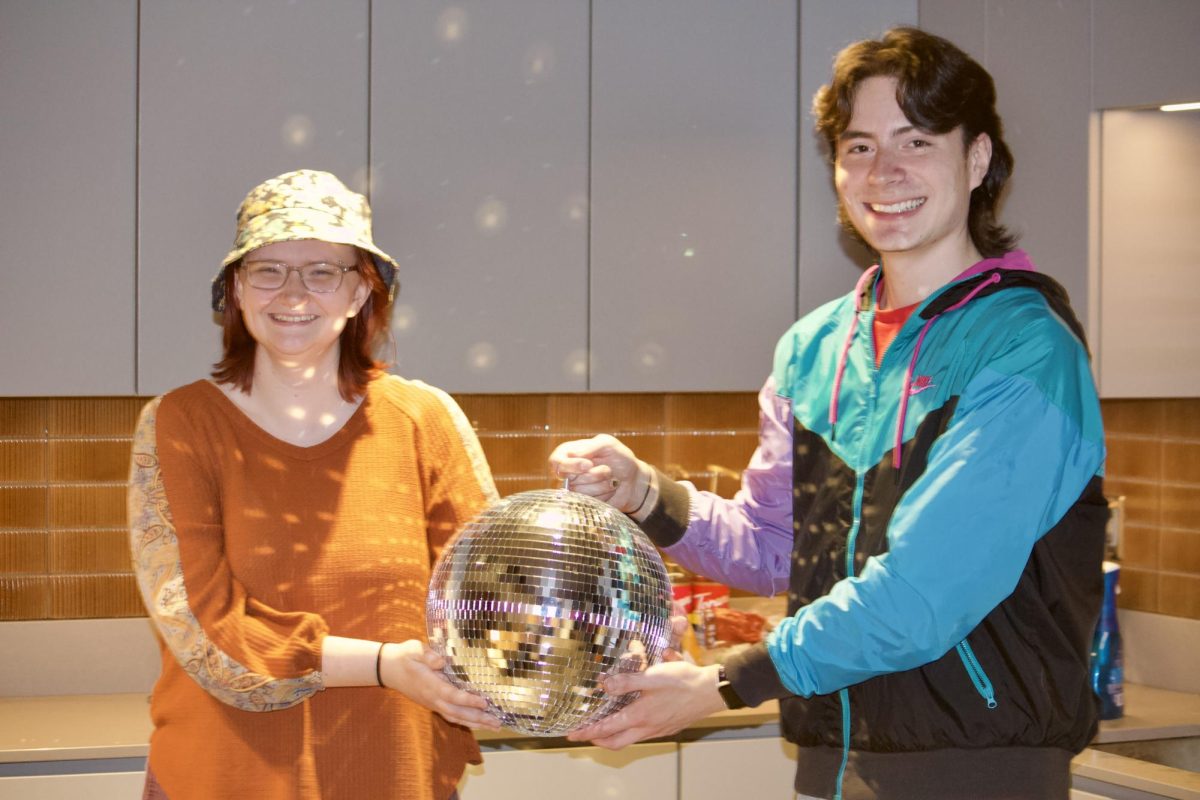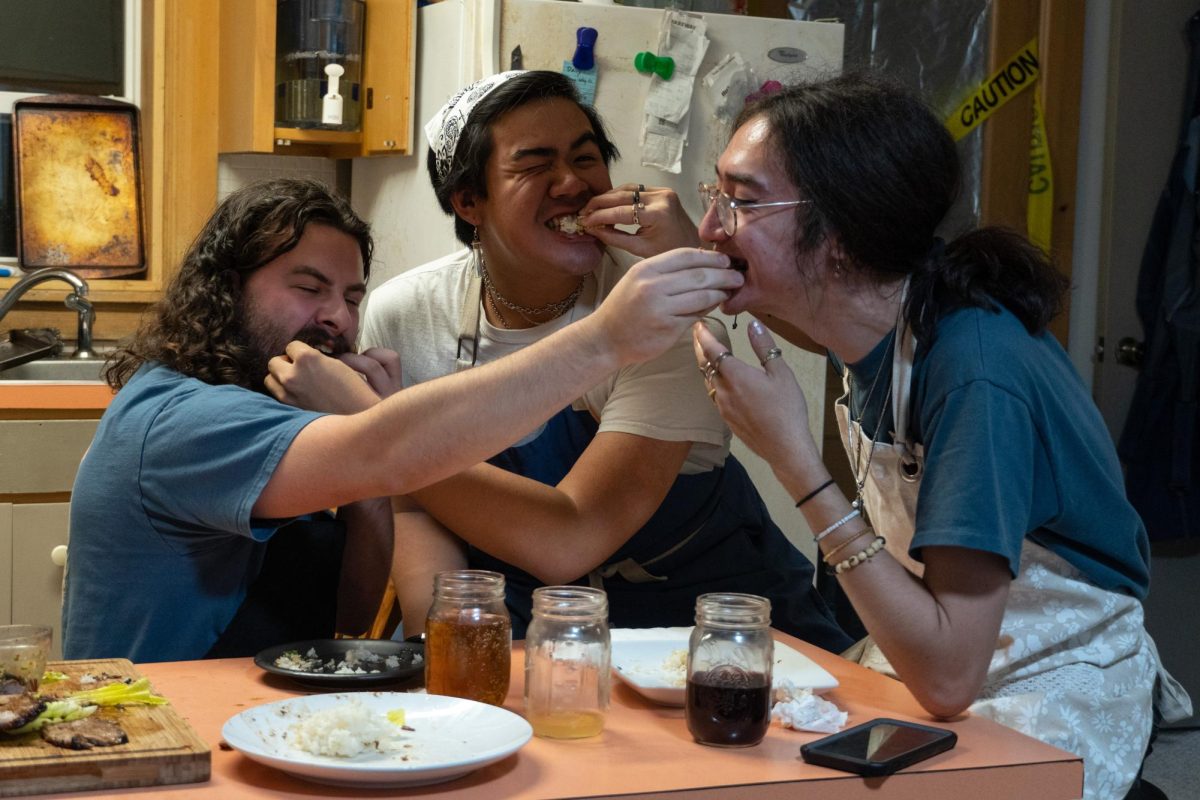
Bob’s Underground Café hosted a screening of the documentary “Just Eat It” on Tuesday night, bringing the important issue of food waste to Grinnellians’ attention. The screening, sponsored by Eco House and Food Recovery Network (FRN), showcased the experiences of filmmakers Jenny Rustemeyer and Grant Baldwin as they embarked on a six-month pledge to only eat food that had been or was going to be thrown away by others.
While there are many documentaries that highlight America’s food waste problem, this one was chosen in particular for its storyline of two people actually cutting down waste in their own lives.
“We wanted to show something that would have more visceral appeal, something that was really a story rather than just a documentary about how bad food waste is, and we also wanted to get a conversation going about food waste rather than just giving people facts, which is what we’ve done in the past,” said Clare Magalaner ’18, a co-chair of FRN.
As the documentary showed, finding high quality food that has been thrown out proved to not be a very difficult task. The film’s protagonists started by searching grocery store dumpsters, before eventually moving up the supply chain to large regional suppliers.
What they found was a veritable treasure trove of high quality food, thrown away for absurd reasons. In one particular case, Baldwin came home with a very large quantity of chocolate, thrown out because in Canada, where the documentary was filmed, it’s illegal to have food labels without a French translation.
While quantity and quality of food were not problems, living this life can be restrictive. Searching for food often meant getting up before sunrise to get to dumpsters before trash collection.
“It’s so cool what they were doing, but that was a full time job,” Magalaner said. “It sounds great how little they spent on groceries all year, that’s awesome, but they also were out at two in the morning.”
“A lot of the people we work with in the community, their main issue is that they don’t have time, they have so many other responsibilities,” Magalaner continued.
FRN works with the Grinnell community, providing community members with food from the dining hall that would otherwise be thrown out.
The time commitment issue means it may be difficult for viewers to know how to make change in their own lives.
“That’s the downside you get from watching the movie: ‘Oh, they did this, what can I do on a smaller level?’ So I think that’s kind of hard to piece together after seeing such a major movement and lifestyle change,” said Mimi Sarai ’18, another co-chair of FRN.
Sarai and Magalaner did have a few suggestions for how students can decrease food waste.
“Be realistic about how much food you’re actually going to eat in the D-Hall every day,” Magalaner said.
“And know that it’s always there to go and get more,” added Sarai.























































